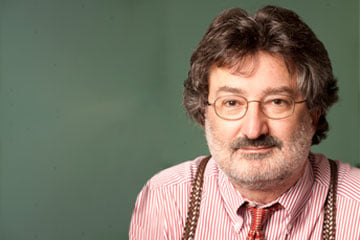
The Law Society of Upper Canada’s statement of principles requirement will not become optional.

LSUC benchers turned down a motion Friday afternoon that would have given conscientious objectors an exemption from the requirement. The obligation requires all lawyers and paralegals to adopt and abide by a statement of principles that acknowledges their obligation to promote equality, diversity and inclusion.
Bencher Joe Groia introduced the motion after backlash from legal scholars and lawyers who argued the requirement was unconstitutional and compelled speech.
“What is clear to me is that a great many men and women of conscience and faith are still troubled by this mandatory requirement,” Groia said to a packed room at the Law Society of Upper Canada in downtown Toronto on Friday.
“I believe that should be enough for us to stop and ask ourselves why do we stubbornly refuse to fix the mess we’ve created?”
Opponents have also argued that there is no evidence that the mandatory statement will advance the goals of diversity and equality.
Groia claimed his motion would advance the goals of diversity and equality “much further” than the statement of principles ever could and said his motion enjoys the support of “many more than just old white men.”
Those who support the statement of principles, however, say the requirement is an important part of a larger initiative to battle systemic racism in the profession. Bencher Raj Anand said the requirement is simply an acknowledgement of obligations lawyers already have.
“Diversity and inclusion is not a zero-sum game,” said Anand, who was the co-chairman of the law society’s Challenges Faced by Racialized Licensees Working Group.
“The human rights of some are the human rights of all. Inclusion benefits all of us.”
Diversity seeking groups such as the Federation of Asian Canadian Lawyers mobilized their members to attend the meeting, where there was standing room only.
Other organizations such as the Ontario Bar Association, the Criminal Lawyers Association, and the Roundtable of Diversity Associations had also expressed their opposition of Groia’s motion in the lead up to the meeting.
In a vote Groia's motion was defeated 38 -16.
The statement of principles requirement was part of 13 recommendations that were passed a year ago to battle the barriers faced by racialized licensees. The recommendations came out of a report that drew from four years of research and consultations.
Under the new obligation this year, lawyers are required to write or adopt a template statement, but will not have to submit it to the law society. The regulator has said there will be no penalty for non-compliance this year, but has not ruled out a possible penalty in the future.
When the recommendations were originally debated last year, bencher Sidney Troister proposed a motion to separate the recommendations so that the statement of principles would be voted on separately.
Troister’s motion failed, the entire package was approved, and the issue did not become a topic of public debate again until the law society started to implement the requirement this fall.
Following some uproar in newspaper editorials and pledges by some lawyers they would not comply with the requirement, the law society recently released a guide to the statement of principles to clarify the obligation.
This said that the statement of principles is about conduct and that it “need not include any statement of thoughts, belief or opinion.”
The requirement is still facing a court challenge by Lakehead University law professor Ryan Alford, in what some benchers feel will become an expensive and drawn out legal fight that will likely end up at the Supreme Court of Canada.